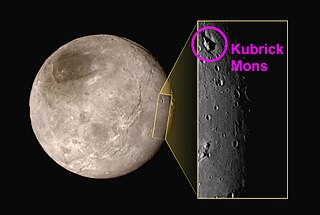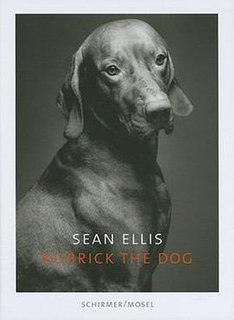
Barry Lyndon is a 1975 British-American period drama film by Stanley Kubrick, based on the 1844 novel The Luck of Barry Lyndon by William Makepeace Thackeray. It stars Ryan O'Neal, Marisa Berenson, Patrick Magee, Leonard Rossiter and Hardy Krüger. The film recounts the early exploits and later unraveling of a fictional 18th-century Irish rogue and opportunist who marries a rich widow to climb the social ladder and assume her late husband's aristocratic position.
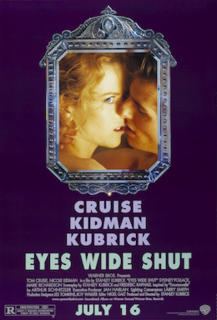
Eyes Wide Shut is a 1999 erotic mystery psychological drama film directed, produced, and co-written by Stanley Kubrick. Based on Arthur Schnitzler's 1926 novella Traumnovelle, the story is transferred from early 20th-century Vienna to 1990s New York City. The film follows the sexually charged adventures of Dr. Bill Harford, who is shocked when his wife, Alice, reveals that she had contemplated having an affair a year earlier. He embarks on a night-long adventure, during which he infiltrates a massive masked orgy of an unnamed secret society.

A.I. Artificial Intelligence, also known as A.I., is a 2001 American science fiction drama film directed by Steven Spielberg. The screenplay by Spielberg and screen story by Ian Watson were loosely based on the 1969 short story "Supertoys Last All Summer Long" by Brian Aldiss. The film was produced by Kathleen Kennedy, Spielberg and Bonnie Curtis. It stars Haley Joel Osment, Jude Law, Frances O'Connor, Brendan Gleeson and William Hurt. Set in a futuristic post-climate change society, A.I. tells the story of David (Osment), a childlike android uniquely programmed with the ability to love.
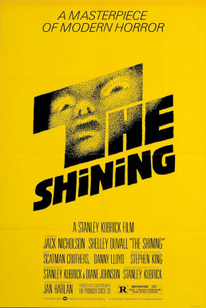
The Shining is a 1980 horror film produced and directed by Stanley Kubrick and co-written with novelist Diane Johnson. The film is based on Stephen King's 1977 novel The Shining.

A Clockwork Orange is a 1971 dystopian crime film adapted, produced, and directed by Stanley Kubrick, based on Anthony Burgess's 1962 novel of the same name. It employs disturbing, violent images to comment on psychiatry, juvenile delinquency, youth gangs, and other social, political, and economic subjects in a dystopian near-future Britain.

Stanley Kubrick: A Life in Pictures is a 2001 documentary about the life and work of Stanley Kubrick, famed film director, made by his long-time assistant and brother-in-law Jan Harlan. Its running time is 142 minutes long, it consists of several 15-minute chapters, each detailing the making of one of his films – and two more showing his childhood and life.
Alan Conway was an English conman, best known for impersonating film director Stanley Kubrick. Conway and his wife were travel agents with offices in Harrow, Muswell Hill and London.
The Suite for Jazz Orchestra No. 2 is a suite by Dmitri Shostakovich. It was written in 1938 for the newly founded State Jazz Orchestra of Victor Knushevitsky, and was premiered on 28 November 1938 in Moscow by the State Jazz Orchestra. The score was lost during World War II, but a piano score of the work was rediscovered in 1999 by Manashir Yakubov. Three movements of the suite were reconstructed and orchestrated by Gerard McBurney, and were premiered at a London Promenade Concert in 2000.

EP+6 is a compilation album by Scottish post-rock group Mogwai, released in Japan in 2000 through Toy's Factory, and later in the UK in 2001 through Chemikal Underground.
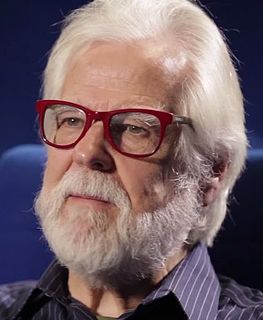
Jan Harlan is a German-American executive producer and the brother of Christiane Kubrick, director Stanley Kubrick's widow. He is the nephew of the film director Veit Harlan.

EP is an EP by Scottish post-rock group Mogwai, released in various countries in 1999.
Andrew Timothy Birkin is an English screenwriter, director and occasional actor. He was born the only son of Lieutenant-Commander David Birkin and his wife, actress Judy Campbell. One of his sisters is the actress and singer Jane Birkin.

2001: A Space Odyssey is a 1968 epic science fiction film produced and directed by Stanley Kubrick. The screenplay was written by Kubrick and Arthur C. Clarke, and was inspired by Clarke's short story "The Sentinel". A novel also called 2001: A Space Odyssey, written concurrently with the screenplay, was published soon after the film was released. The film, which follows a voyage to Jupiter with the sentient computer HAL after the discovery of a mysterious black monolith affecting human evolution, deals with themes of existentialism, human evolution, technology, artificial intelligence, and the possibility of extraterrestrial life. The film is noted for its scientifically accurate depiction of spaceflight, pioneering special effects, and ambiguous imagery. Sound and dialogue are used sparingly and often in place of traditional cinematic and narrative techniques. The soundtrack incorporates a number of pieces of classical music, among them Also sprach Zarathustra by Richard Strauss, "The Blue Danube" by Johann Strauss II, and works by Aram Khachaturian and György Ligeti.

The soundtrack to Stanley Kubrick's A Clockwork Orange was released to accompany the 1971 film of the same name. The music is a thematic extension of Alex's psychological conditioning. The soundtrack of A Clockwork Orange comprises classical music and electronic synthetic music composed by Wendy Carlos. Some of the music is heard only as excerpts, e.g. Edward Elgar's Pomp and Circumstance March No. 1 heralding a politician's appearance at the prison. The main theme is an electronic transcription of Henry Purcell's Music for the Funeral of Queen Mary, composed in 1695, for the procession of Queen Mary's cortège through London en route to Westminster Abbey. "March from 'A Clockwork Orange'" was the first recorded song featuring a vocoder for the singing; synthpop bands often cite it as their inspiration. Neither the end credits nor the soundtrack album identify the orchestra playing the Ninth Symphony excerpts, however, in Alex's bedroom, there is a close-up of a microcassette tape labeled: Deutsche Grammophon – Ludwig van Beethoven – Symphonie Nr. 9 d-moll, op. 125 – Berliner Philharmoniker – Chor der St. Hedwigskathedrale – Ferenc Fricsay – Irmgard Seefried, Maureen Forrester, Dietrich Fischer-Dieskau, Ernst Haefliger.
Anthony Edward Frewin is a writer and erstwhile personal assistant to film director Stanley Kubrick. Frewin now represents the Stanley Kubrick Estate. His novel London Blues has been described as "masterful".

A list of books and essays about Stanley Kubrick and his films:

